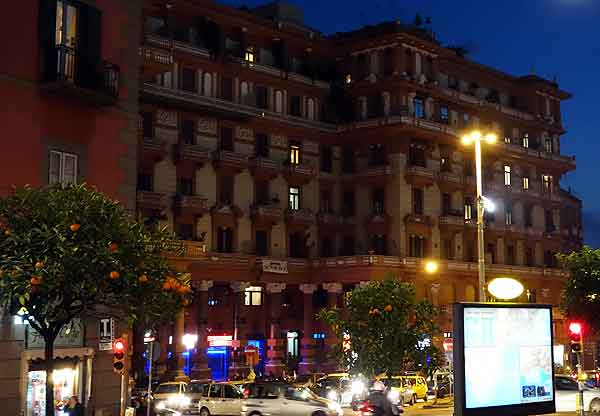
NAPLES, ITALY, the week before christmas. We now have to rush to our last meeting with Franco outside Mergellina station. It’s 5:00 and Michele hustles us toward the train but I’m transfixed, feet rooted to the ground. I’m watching a living, black, organic shape in the sky as it morphs like an amoeba, low over the city. It’s huge, monstrous, yet graceful, and I know that it’s thousands of starlings flying some innate choreography, like a screensaver in the sky.
Michele calls Franco when we arrive at the station. Franco is unenthusiastic on the phone. “I have someone fixing the boiler right now. Well, Okay, I’m coming.” But as usual, he’s warm and lively when he zooms up on his scooter.
Despite his griping, Franco likes the film. He chuckles. He’s only concerned about certain people knowing what he does for a living. I presume that everyone already knows—he’s been working out in the open for decades. If Bob and I, a couple of occasionally-visiting foreigners, see him at work, it must be common knowledge. But it’s the neighbors in his building he’s concerned about, and his younger children. His two grown children were raised knowing what their father did. But it’s different with the small ones now. He knows they’re going to find out, but he wants to delay it.
The sky has turned from luminous dark blue to black. I’m freezing and dying to get off my feet, but this is clearly going to be a long meeting, standing here in front of the train station, circling Franco’s scooter. Franco’s phone interrupts us continuously. He wanders a few steps away to take calls, but speaks loudly.
Franco has a serious question. He asks if we think he looks like a pickpocket. We say no, not at all. He looks like an ordinary man, trustworthy. Franco likes this, and says that’s his goal. That’s why he carries no tool. The tool makes him recognizable.
I notice how very beautiful this piazza is. The surrounding buildings are immaculate, brightly painted, and warmly lit. The trees are heavy with ripe oranges so perfect they look fake.
Franco speaks sadly about his wife’s depression, that possibly it’s a form of relief: it’s okay for her to fall apart now because he is finally healthy. It is ironic, because all the times he was drug-sick or in jail, his wife had to hold the family and finances together. Bob insists she is sad because of his profession, and her worry that he can go to jail at any time. Franco says no, he hasn’t been arrested in ten years.
About teamwork, Franco says his brother is an excellent Nona (blocker) and has a gift for reading the body language and mood of marks. He can separate a couple swiftly, which is exactly what the pickpocket needs. Franco sashays gracefully between Bob and me, making me spin away. But his brother wants to do the extraction, and that he is not too good at. This causes rifts and family arguments. Bob later describes Franco’s demonstration as “smooth and practiced, like a slalom skier.”
Finally we say goodbye and Franco speeds into traffic. Michele has a lot of catching up to do translating the gist of Franco’s rants. His (Franco’s) language skills are very poor, though sometimes he is colorful and poetic. He cannot speak in Italian at all—only in the Napolitano dialect. He knows there are words out there, Michele says, so he reaches out and grabs one, though it is often the wrong one. Michele is rather colorful himself.
Together, we take the small streets back to our hotel and Michele points out what the neighborhood was like when he grew up here. It’s a long, long walk, but it warms us. We pop into bright little shops along the way and pick up cheese, bread, grapes, and that incredible licorice liqueur.
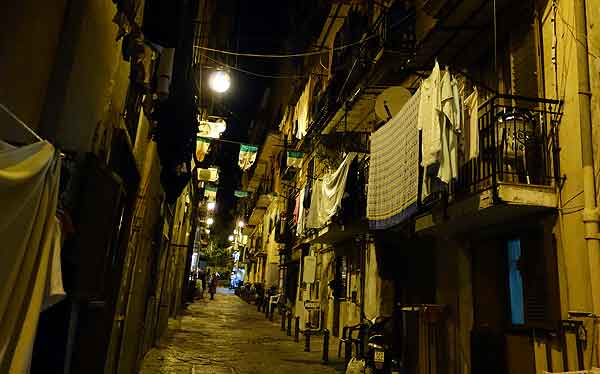
This is Part 9.
Read Part 1.




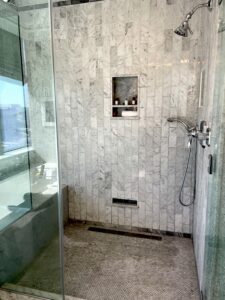
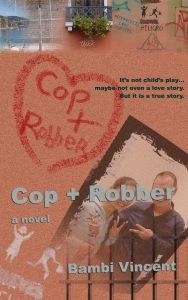
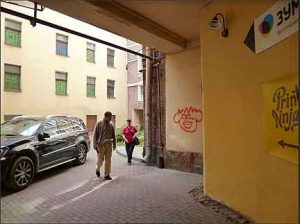
No comment yet, add your voice below!